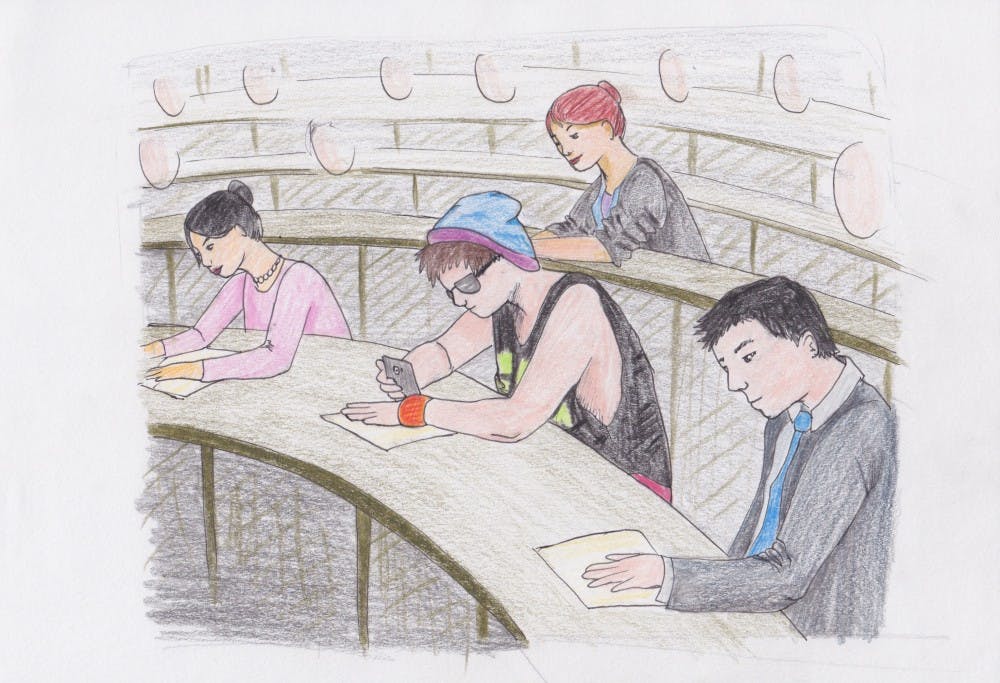At the start of my junior year of college, I enrolled in exclusively upper-division classes. Every week I am completing assignments that I will hopefully become pieces of my professional portfolio. At this point in my academic career, my professors are holding my peers and me to a standard higher than we've ever been held to before: a professional one.
Now I know that the way you present yourself, between your physical appearance and your overall presentability, makes a difference, even at a collegiate level.
Many people think professionalism starts at your internships or your first job out of college, but they're wrong. Professionalism starts with the way you carry yourself in your classes while you still attend college.
Your college classes, especially in your final year or two, are the last "practice round" you get before the adult world is thrust upon you. Their expectations include dressing appropriately, speaking properly and marketing yourself as someone who takes both their work and themselves seriously.
Inevitably, the first thing others notice about you is your appearance. Casual dress is overlooked because it has become normalized. Seeing a fellow student looking "put together" draws the eye and sometimes creates confusion, as you wonder why they would get "dressed up" for class. Our first assumption isn't that they take pride in their appearance, it's that they must need to be dressed well for an occasion, and that's a problem.
No one is asking you to wear a suit and tie or a pencil skirt to class every day. Professionalism doesn't just address clothing, and it can vary job to job. Some professions don't even stipulate a level of appropriate behavior, and for some it's simply inherent. Your appearance is one part of it, but your decorum says it all.
Public relations professor Virgil Renzulli said he understands the need to adapt to the weather in Arizona, but that casual dress has changed more recently.
"Everyone dresses so casually we've lost the meaning of 'business dress,'" Renzulli said. "Casual dress is just so pervasive now."
Appearance isn't the only thing people notice, though. The way you carry yourself and how much effort you put into the conversation reflects your level of professionalism as well. If you can't seem to get through a sentence without swearing or using slang, others will take note of that. It shows that you aren't taking the time or consideration to value the conversation you're having.
And that's truly the underlying problem, that students are missing the value of professionalism in their college classes. Consider your environment: your professor is a potential recommendation letter, your peer is a potential coworker and you are most likely studying to become a professional.
Journalism sophomore Alexis Berdine said it is important to have a balance in life between expressing yourself and acting professionally, but that it's all about knowing the time and the place.
"I think from a young age it is important to be able to express yourself through your clothing. There is no shame in trying to keep up with fashion trends either," Berdine said.
"However, anytime that you are putting yourself in a professional setting, it is so critical to ensure your success not only through the way you conduct yourself but also in the way that you present yourself."
Berdine said it can be challenging to gauge professionalism as a student when you are still discovering exactly what "profession" you have, but that she always at least tries to get it right.
"I strive to be like my professors, my mentors, and my mother is the most professional person I know, not only in the way that she dresses but the way that she speaks, how she acts," Berdine said.
"It is so important to me to start practicing now, the more I can get the hang of dressing professional and conducting myself in an adult manner, the more successful I will hopefully be in my field and in life."
Reach the columnist at sphaas@asu.edu or follow @_SavannahHaas on Twitter.
Like The State Press on Facebook and follow @statepress on Twitter.The State Press or its editors.
Want to join the conversation? Send an email to opiniondesk.statepress@gmail.com. Keep letters under 300 words and be sure to include your university affiliation. Anonymity will not be granted.




